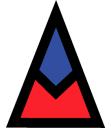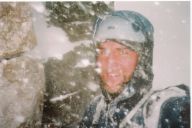|
|
Art of Freedom by Bernadette McDonald
Today is the publication date for Bernadette MacDonald's biography of Voytek Kurtyka ‘Art of Freedom’ Below is an except from this new book by award winning author of Freedom Fighters.
Something else was stirring within Voytek of which his father had no
inkling. It was on a high-school hiking trip to Poland’s Tatras that Voytek
had his first real encounter with a mountain. ‘I remember the moment, I wasn't climbing. I was just watching the mountains. Watching
and admiring. I felt as if the mountains were alive. I belonged there. I felt
a part of them. I had a strong desire to get a response from them and felt
almost sorrowful that the mountains didn't give me a sign.’ Voytek had discovered
an emotional connection to a landscape that reached far beyond
his intellect and that created even more distance between father and son.
Despite being misunderstood by his father, Voytek did, more or less,
what he was told. He entered university, studied for five years and graduated
with a degree in electronics. But he had no interest in the subject
matter. He attended classes rarely, preferring to cram day and night for his
exams. ‘Upon exiting the exam room, not one single piece of information
remained in my head,’ he laughed.
A new kind of knowledge was filling that space. Voytek had discovered
rock climbing.
|
His first experience on rock was in 1968. Elzbieta Waga - or Ella, as
she was known - was studying medicine at the same university and invited
Voytek to join her and a teaching assistant for an outing to a nearby
crag. The assistant, who was clearly more interested in Ella than in climbing,
was in a decidedly sour mood about Voytek's presence. But nothing
could stifle their pleasure from scampering about on the granitic rock of
the Sokoliki spires near Wroclaw, where all the city's climbers learned to
climb. ‘At the first contact with the rock it was a feeling as though long
forgotten, yet strangely familiar,’ Voytek recalled. ‘Immediately after the
first three moves I knew I would be doing more of this.’
He did. A lot more of it. In fact, climbing on rock became a kind of trap
for Voytek. ‘Maybe I didn't understand how serious a trap it was,’ he later
admitted. It must have been a relief to abandon his boring electronics
classes for something that captivated his every thought and emotion. As
ecologist E.O. Wilson wrote in Consilience, people 'gravitate towards environments
that reward their hereditary inclinations.' Voytek's attraction
to the vertical world of rock seemed predestined.
|
In the late 1960s, the Wroclaw Climbing Club was teeming with good
climbers: Wanda Rutkiewicz, Bogdan Jankowski, Krzysztof Wielicki, all
future stars of the mountaineering community. Voytek soon provided an
intriguing addition to the scene. A slight young man, he exuded intensity,
his body coiled, ready for action. His curiosity was limitless, and his
powers of observation were impressive, relative not only to the concrete
and factual but also to the nuanced and emotional. Despite his sensitivity,
socially he presented an almost arrogant attitude disguised by hippie
headbands and flowery shirts. The combination of his natural talent and
his striking good looks made a powerful impression.
It was at the local crags that Voytek met Wanda, the beautiful and athletic
young student who would become the most famous of all Polish
female alpinists. He became infatuated with her deep-set eyes and her
flashing smile, but only for a few weeks. He had something else on his
mind: the granitic rock beneath his fingers.
To find out more about Art of Freedom, visit the
Vertebrate Publishing Website
|



